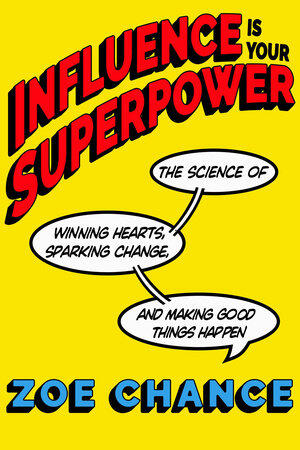This one word is killing your charisma, folks
“Most of us, most of the time, aren’t consciously trying to be the centre of attention. But we can fall into this trap subconsciously, focusing on ourselves in ways that are anti-charismatic. Humour me for a moment and try this exercise…” writes Zoe Chance, a Senior Lecturer in Management at Yale University and author of a new book, Influence Is Your Superpower.
In a Yale Insights article, Chance outlines how people who feel they have less influence or power over others, will use the pronoun “I” more often than those that are in say higher positions or more successful in their jobs or just exude true self-confidence.

That means followers will use the word “I” in speech patterns and email correspondence more than most leaders will. Richer people, happy people, men, successful students, all use much less self-referential language, yet poorer people, depressed people or failing students, often do the exact opposite. Why?
According to analyses of formal and informal conversations, speeches, emails, and other written documents, James Pennebaker, a social psychologist who describes his book The Secret Life of Pronouns found that people who feel they have less power or lower status tend to use more “self-referential language”.
Chance writes: “Sometimes the gap has a basis in reality—followers must take orders from leaders, and the poor are less powerful than the rich. But unconscious linguistic patterns derive more precisely from feelings of personal power—or lack thereof.”
The use of diminishers—those verbal attempts to connect through submission—will often also diminish your charisma or confident appeal to others.
“These [diminishers] are the human equivalent of a dog rolling over to expose his belly or neck,” says Chance.
“We tend to use them in situations where there’s an imbalance of power or status, and we do it more often when we’re on the low end—when we feel our safety or well-being may depend on being liked. Higher-status people don’t need to care what others think of them, although some who do care diminish themselves in order to avoid coming across as arrogant or controlling.”
Senior Lecturer in Management at Yale University and author
After reading this, you might be thinking of yourself (obviously, right?) and how your language has been rocking or killing your charisma. I for one, am going to keep a closer eye on my choice of words going forward, but more importantly, as I hope you do too, proactively choose to mentally place your status higher than you normally would in every human reaction you have. Work to become the person who:
- Values their own time and money (rich and successful people do)
- Values their own skills and knowledge (this is reflected in successful freelancers’ rates)
- Is a better listener (that collects wisdom along the way)
- Makes others feel valued, but not at the expense of their time or dignity: “So glad we connected. Must hop on another call/must mingle (if networking). You’ve got my details.”
- Being more straightforward when asking for something, such as: “Would you mind switching the meeting slot to…?” rather than “I was hoping I could move the meeting slot because I …”
Once you see the power of pronouns, articles, and other function words, Pennebaker says you will better understand:
- Why self-confident leaders rarely use the word “I” and insecure and depressed people do.How Tweets and Facebook posts can tell us about the personality of their authors.
- Why lying to others and to ourselves causes us to talk differently.
- How it’s possible to predict if two people will fall in love by counting the function words the two people use in their first conversation with one another.
- How writing about an emotional upheaval using particular linguistic styles can help you get past it.
- Why analysing your own emails, letters, and natural conversations can tell you about yourself and the relationships you cherish most.
To read Chance’s article in full, go here, or to purchase her book, Influence Is Your Superpower, click here.
To learn more about the book The Secret Life of Pronouns, go here.


